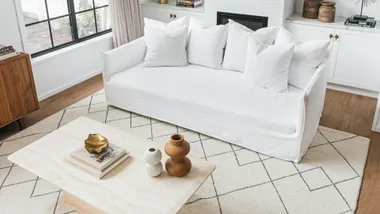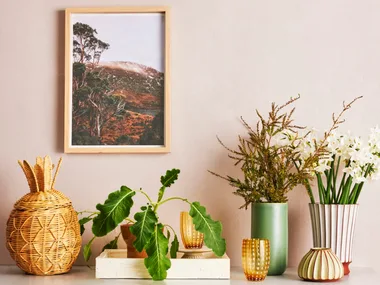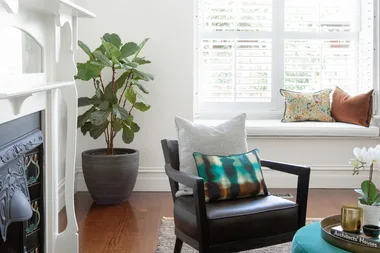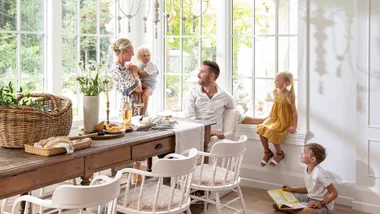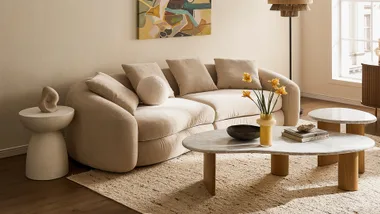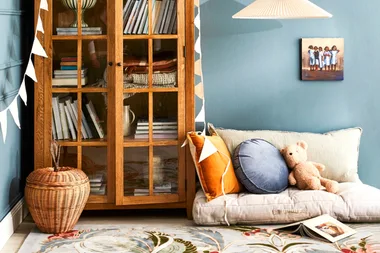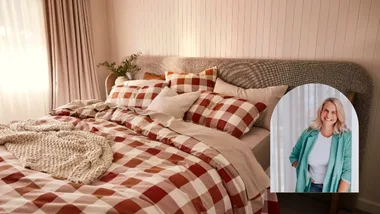Evidently, the Hamptons-style home originated on the East Coast of Long Island, America, in the beach house haven of affluent New Yorkers. But if there’s one culture that has well and truly adopted the Hamptons-esque vibe, it’s Australians.
With a climate that’s equally suited to open-plan, breezy houses, and a long-time love of beachfront accomodation, it’s no surprise that Australians have adopted the Hamptons aesthetic as their own. Even its favourite tones of white, grey and cream are perfectly in tune with our never-ending sandy beaches.
So what is it that makes our coastal homes so similar – or different? We spoke to two experts, Natalee Bowen from Indah Island and Andrew Bella, Northeast US Sales Director from James Hardie, to hear their thoughts on how the Hamptons facade compares across the continents.
1. what size are hamptons homes in Australia?
USA: “The Hamptons look has spread across the east coast, from New York state to Cape Cod and one of the defining features is size – the bigger the better. These homes are made for any entertaining occasion from weekend getaways to functions and gatherings,” says Andrew.
AUS: According to Natalee, “size has definitely inspired the Australian Hamptons look, but we’re building our homes on anything from rural farmland to inner suburb blocks,” so it’s not everything for Australians. “It’s about using the area you have to create that open airy feel, often through open floor plans and lots of natural light.”
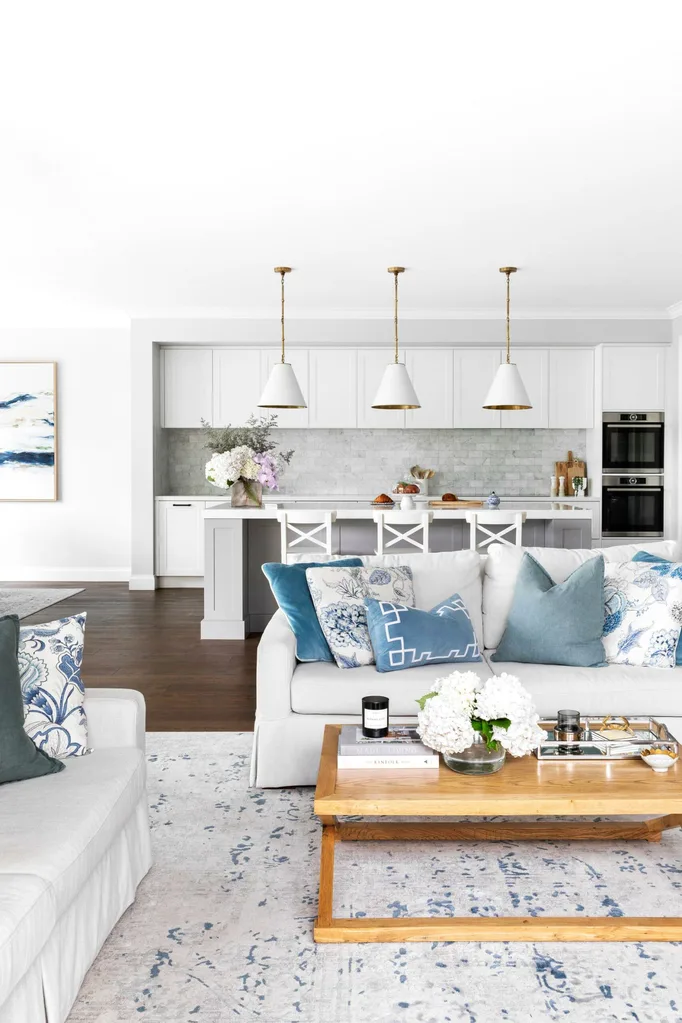
Let there be light. This surburban home has embraced the Hamptons look with high ceilings and large openings to allow natural light to flood the living spaces.
(Credit: Photography: Martina Gemmola | Styling: Aimee Tarulli)2. Outdoor Hamptons style inspiration
USA: “A basic tenant of the Hamptons look is reflecting the surrounding area. In America this means the whites, blues and other coastal elements,” explains Natalee.
AUS: The natural hues of down under, however, are quite different. “In Australia, we take this principle and apply it to our locations. Colour palettes can range from eucalyptus greens and caramels in rural areas, to shades of greys in cities,” says Natalee.
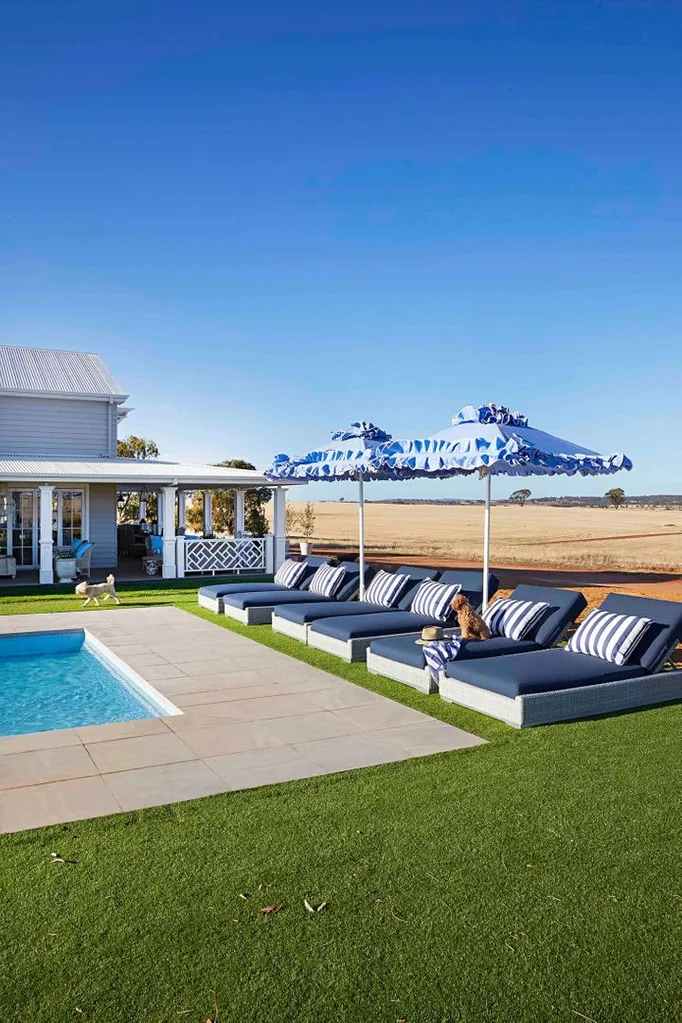
A classic coastal colour palette imbues Natalee’s own Hamptons style estate on sprawling farmland in the Western Australian Wheatbelt.
(Credit: Photography: Cath Muscat | Styling: Fiona Gould)3. A choice of Hamptons style materials
USA: “American Hamptons style homes exude timeless charm and the sense of understated ‘old money’ luxury. The look relies on muted tones that are given richness with material choices, including ‘old world’ materials like timber shingles and stone,” says Andrew. “In America we have a range of climate to consider, so preferences vary from asphalt shingles to slate or tile rooves depending on which coast you’re on.”
AUS: “After a long legacy of using red and cream brick, Australians are looking to use modern materials that give a feel of quality craftsmanship that will stand the test of time,” says Natalee. “A must have is weatherboards that create a classic Australian cottage look that has a colonial charm, giving a familiar but more contemporary shadow line look that is used in America to add texture. The cladding is also better suited to the harsh Australian climate than timber, as it is made from fibre cement which is resistant to warping, flaking and damage from moisture and fire.” Also, “Australians prefer a corrugated steel roof which is a big difference and a material that’s quintessentially Australian,” adds Andrew.
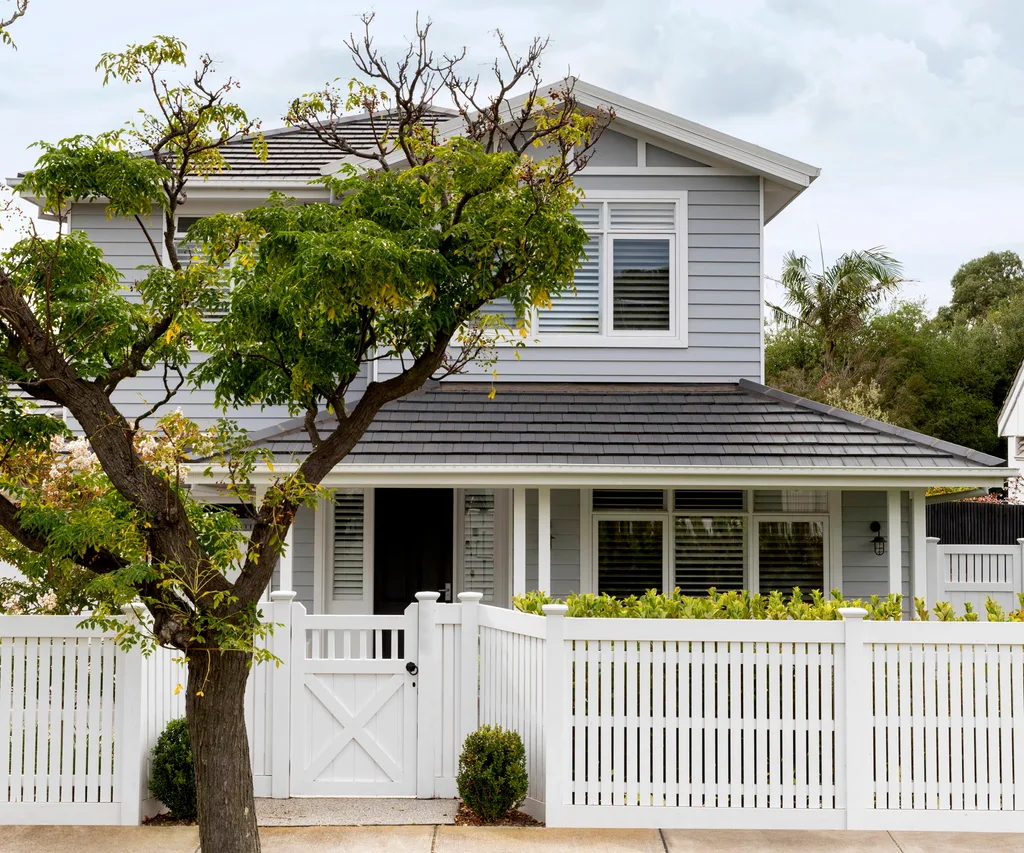
This Californian bungalow in Melbourne complements the streetscape while radiating understated coastal Hamptons chic.
(Credit: Photography: Martina Gemmola | Styling: Aimee Tarulli)4. Hamptons design details
USA: “Gable roofs are a classic Hamptons motif that stops the home looking blocky and creates beautiful ceilings inside the home. In America they have multiple gables, dormer windows and cupolas, as money is no object for the extremely wealthy Hamptons homeowners,” said Natalee.
AUS: Australian Hamptons homes also love detail. “Australians hold true to this original thinking through the use of Axent trim, a fibre cement architrave used to enlarge window and door frames, which is finished in a bright white, is extended onto eaves,” said Natalee. “In Australia, where the look has been made more accessible, volume builders have figured out how to simplify the style with token gables,” she added.
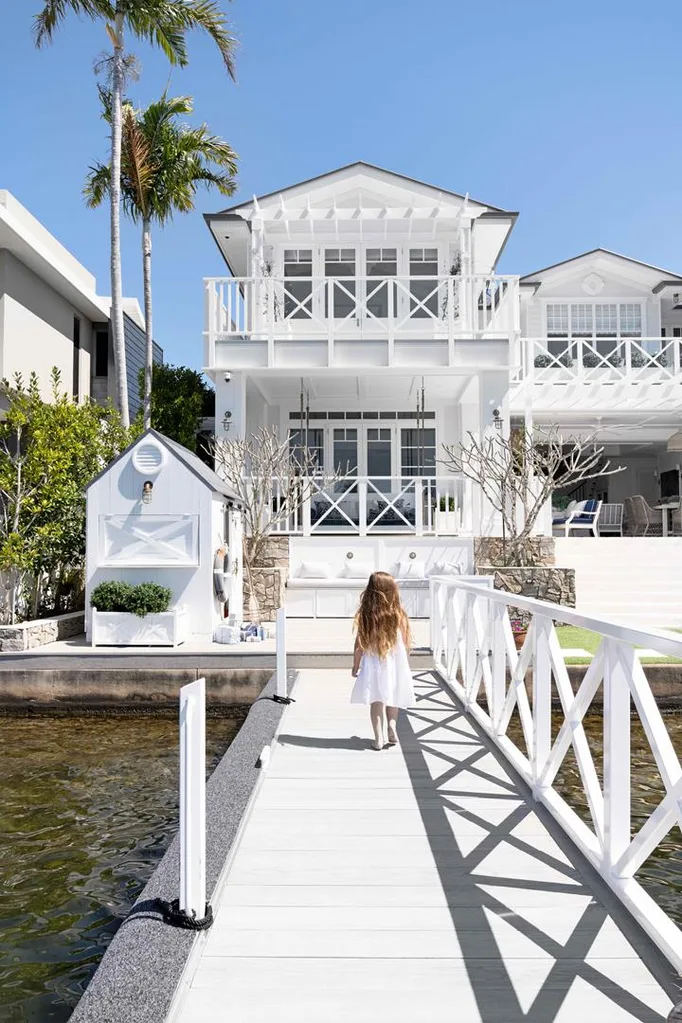
This Hamptons oasis on the Gold Coast channels the classic exterior Hamptons architecture in multiple gabled roofs and, verandahs .
(Credit: Photography: Louise Roche | Styling: Kylie Jackes)5. Hamptons style verandahs
USA: “Alfresco and outdoor entertaining areas capture that love of indoor-outdoor living areas,” said Natalee, and these areas are prioritised on the East Coast.
AUS: In Australia, however, we combined this love with our historic appreciation for verandahs. “The additional Australian twist on this is the addition of verandahs,” says Natalee. “In Australia, we have a tradition of wrap around verandahs which are reminiscent of country homes and Queenslanders.”
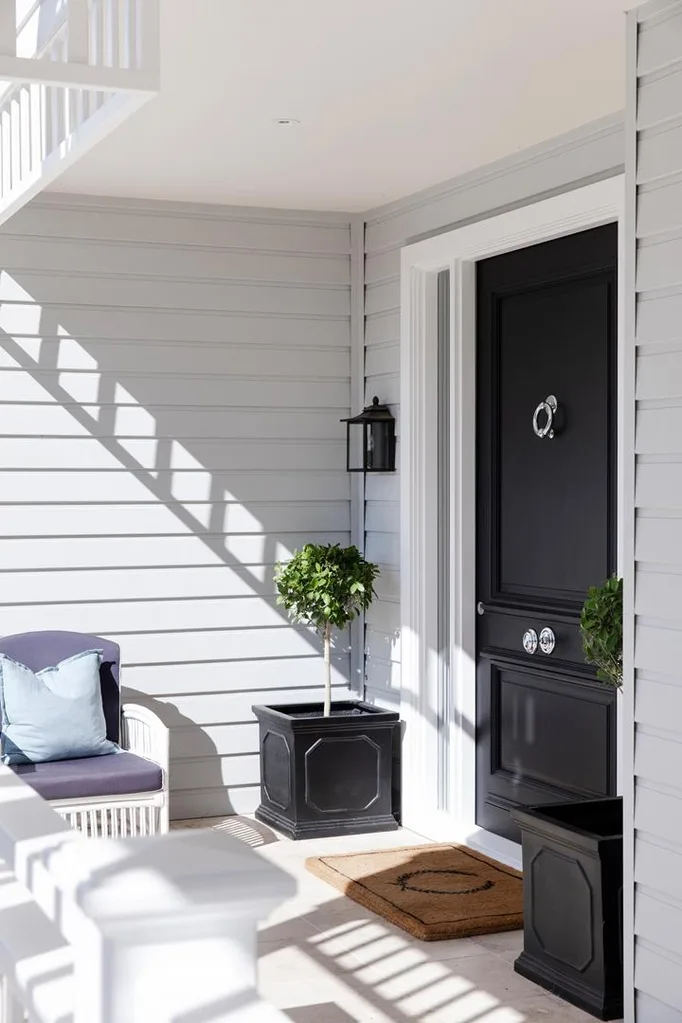
Soft grey weatherboards surround the entrance to this renovated Hamptons-style home in Sydney’s north, punctuated by a black front door.
(Credit: Photography: Chris Warnes | Styling: Fiona Gould)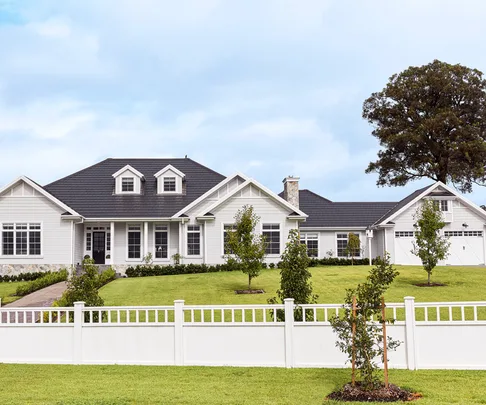 Photography: Alana Landsbury
Photography: Alana Landsbury
